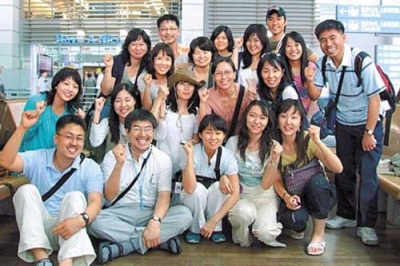Taliban-South Korean Hostage Crisis Inspires New Film

A new movie is in the works, based on the story of the 23 South Korean Christian missionaries who were taken hostage by the Taliban in 2007 and the ambivalence towards their plight at home.
Directed by Christian South Korean director Lee Jang-Ho, "God's Eye View," tells the story of Christian volunteers kidnapped by Muslim rebels on a missions trip. At home, the film shows the dichotomy of responses: pastors praying for the return of the Christians, while online forums lambasting them for putting themselves in harm's way in the first place and making their country lose face.
Lee saw the film as an opportunity to encourage the audience to critically think about faith and religion.
"It is based on the Saemmul Church event. But I tried to use the event as a tool to raise interesting questions about religious conviction and apostasy," Lee told the Associated Press.
South Korea sends thousands of missionaries across the globe every year. According to a 2013 Gordon Conwell study, South Korea sends 1,014 missionaries per million Christians, ranking fifth in the world.
Though the majority of South Koreans are Buddhists, Christians make up around 30 percent of the country's population, though they are treated at times with suspicion. Lee saw his film as an opportunity to educate and inform others about his faith.
"Rather than to believe it, I want people to understand Christianity," he said.
In 2007, 23 South Korean Christian missionaries boarded a bus taking them from Kandahar to Kabul, Afghanistan. After one of two local men whom the bus driver had allowed to board began shooting, the bus stopped and the passengers were taken hostage by the Taliban.
Six weeks later, the hostages were let go after South Korea negotiated with the Taliban, agreeing to pull out its 200 troops from Afghanistan in exchange for their release. However, the hostage incident saw South Korean pastor Bae Hyeong-gyu, and missionary Shim Seong-min executed by the Taliban during their captivity.
When the surviving hostages finally returned to South Korea, the country was not uniformly happy to see them.
"How much national resources have been spent on these 23 crazy people?" said one typical posting on the popular Internet site dcinside.com. "Proselytizing in an Islamic country? They prayed for their own death. I wonder why the government negotiated for their sake to begin with."
"Most consider this a man-made disaster sown by Korean churches' indiscriminate zeal to proselytize and their disregard for safety," Shin Yong-gug, secretary general of the nonprofit group People's Association of Religion Critics, told The New York Times.
After the crisis all of South Korea's major church groups apologized for the Afghan crisis and pledged that they would modify the way they dispatched missionaries.




























